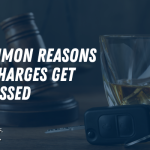Personal injuries can happen in countless ways and often result from unforeseen accidents or negligence. Whether it’s a collision on the road, a slip and fall incident, an accident at work, or an unfortunate encounter as a pedestrian or cyclist, the consequences can be life-changing. These injuries not only impact physical health but can also lead to emotional distress and financial hardships.
Understanding the common types of personal injuries, their causes, and the legal rights associated with them is essential for victims seeking justice and compensation.
Motor Vehicle Accidents
Among the most common causes of personal injuries are motor vehicle accidents. These can involve collisions between cars, motorcycles, trucks, or other types of vehicles. Accidents can result in many different ways, including distracted driving, speeding, poor weather conditions, or driving while under the influence of alcohol or substances. Personal injuries can result from these accidents.
These injuries can be anything from minor cuts and bruising to injuries such as whiplash, broken bones, and in severe accidents, traumatic brain injuries (TBI) or spinal cord damage. Seeking legal advice is important for victims facing extreme medical expenses, lost wages, and emotional distress. Making legal claims can be essential for receiving compensation, and having the help of a personal injury lawyer near you can help navigate the legal system.
Slip and Falls
Injuries can occur when individuals lose their footing due to bad walking conditions, such as wet floors, uneven surfaces, poor lighting, and debris. These accidents are known as Slip and Falls. They are associated with premises liability cases, where property owners may be held responsible if they fail to maintain a safe environment.
Common injuries that result in these accidents include sprains, fractures, concussions, or even serious head or back injuries. These injuries can happen anywhere, from public spaces to private properties, emphasizing the importance of proper maintenance and safety measures.
Workplace Injuries
Workplace injuries are accidents or health conditions that occur during employment. These injuries can result from unsafe working conditions, lack of proper training, faulty equipment, or repetitive strain. Examples include falls from heights, injuries from heavy machinery, exposure to toxic substances, and repetitive motion injuries like carpal tunnel syndrome. Workplace injuries are typically addressed through workers’ compensation claims, but in some cases, third-party negligence may allow for additional legal actions.
Pedestrian and Bicycle Accidents
Pedestrian and bicycle accidents occur when walkers or cyclists are struck by vehicles or face hazards such as poorly maintained sidewalks or roads. These incidents can result in severe injuries, given the lack of physical protection for pedestrians and cyclists compared to motor vehicle occupants. Common injuries include fractures, internal injuries, head trauma, and lacerations. Distracted driving, speeding, and failure to yield are frequent causes. Legal claims in these cases aim to secure compensation for medical expenses, lost income, and pain and suffering.
Steps to Take After Suffering a Personal Injury
Experiencing a personal injury can be overwhelming, but taking the right steps immediately afterward can protect your health and your legal rights. Here’s what you should do if you’ve suffered a personal injury:
- Seek Medical Attention Immediately — Your health and safety are the top priorities. Even if your injuries seem minor, it’s essential to get checked by a medical professional. Some injuries, like internal damage or concussions, may not show symptoms right away.
- Document the Incident — Gather as much information as possible about the accident. Take photos or videos of the scene, your injuries, and any contributing factors, such as hazardous conditions or vehicle damage.
- Collect Witness Information — If there were witnesses, obtain their names and contact information. Their statements can be valuable when establishing what happened.
- File a Report — Depending on the type of accident, report it to the appropriate authority. For example, call the police after a car accident, notify a manager or property owner after a slip and fall, or inform your employer if it’s a workplace injury.
- Keep Detailed Records — Maintain a record of all related expenses, including medical bills, lost wages, transportation costs, and any out-of-pocket expenses related to your injury. This documentation is essential for calculating compensation.
- Avoid Admitting Fault — Be cautious about what you say after the incident. Avoid admitting fault or making statements that could be interpreted as accepting responsibility, as this can impact your case later.
- Contact a Personal Injury Lawyer — Reach out to a qualified personal injury lawyer near you as soon as possible. They can provide legal advice, help you understand your rights, and build a strong case to seek compensation.
- Follow Medical Advice — Adhere to your doctor’s treatment plan and attend all follow-up appointments. Failing to follow medical advice could harm your recovery and weaken your legal claim.
By taking these steps, you can protect your health, strengthen your case, and improve your chances of receiving fair compensation for your injuries.
Understanding Your Rights After an Injury
If you’ve suffered a personal injury due to an accident or someone else’s negligence, contacting a personal injury lawyer, such as Roberts Personal Injury, is a crucial step. An experienced attorney can help you navigate the complexities of legal claims, gather necessary evidence, and negotiate with insurance companies to secure fair compensation. They can also provide guidance on your rights and ensure you take the appropriate steps to protect your case.
Personal injuries often stem from accidents or negligence and can have life-altering physical, emotional, and financial impacts. Common types include motor vehicle accidents, which result from issues like distracted driving or speeding; slip and falls caused by unsafe walking conditions; workplace injuries from hazardous environments or repetitive strain; and pedestrian and bicycle accidents involving collisions or poorly maintained infrastructure. Victims should seek legal advice to understand their rights and secure compensation for medical expenses, lost income, and other damages.


